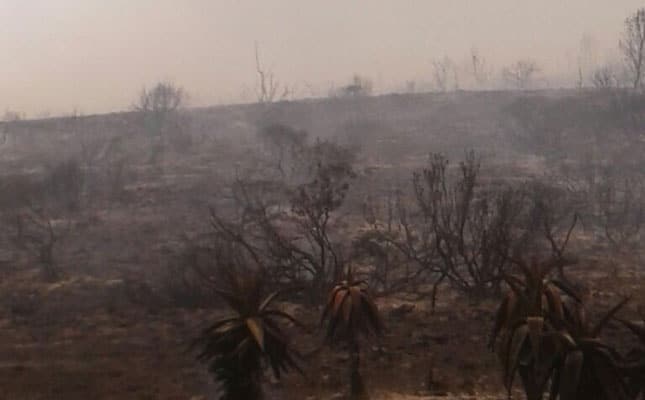
According to the Western Cape Department of Agriculture, this estimate is based on information gleaned from questionnaires distributed to farmers.
“In total, we received feedback from 79 farmers. The data shows that infrastructure, crops, livestock, natural vegetation, grazing, fencing and water pipelines have been destroyed,” the MEC for agriculture, Alan Winde said.
It was estimated that damage to grazing, fences, pipe lines, watering points for animals and irrigation systems, amounting to about R22 million, was not covered by insurance.
“Farmers will have to purchase additional fodder where there has been significant damage to grazing. This will have to continue until the rain starts, and the veld has recovered. Added to this is the cost of replacing infrastructure such as farm buildings, fences and watering points for animal and irrigation systems,” Winde said.
According to Winde, the department of agriculture’s Sustainable Resource Management programme was allocated R86 million in the current financial year, in part to assist with disaster management in the agriculture sector.
An interim report on the fire damage to farms, issued earlier this year, reported that 20 000ha had been damaged in the Riversdal and Stilbaai areas (Hessequa), 35 000ha in the Swartberg, Meiringspoort and De Rust area and a further 20 000ha in the Plettenberg Bay district.










